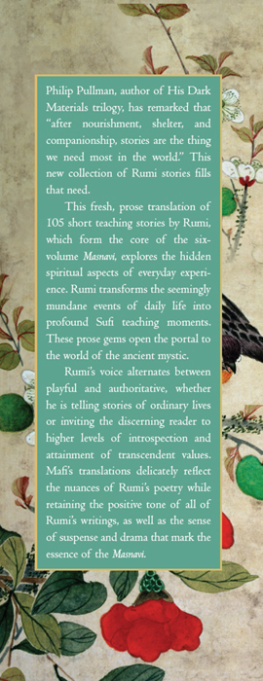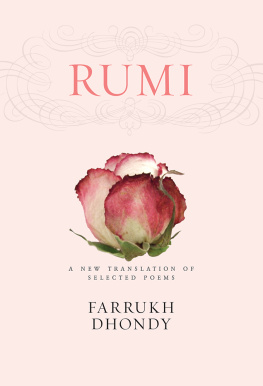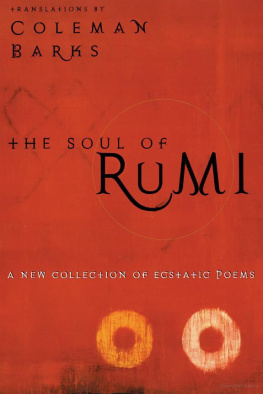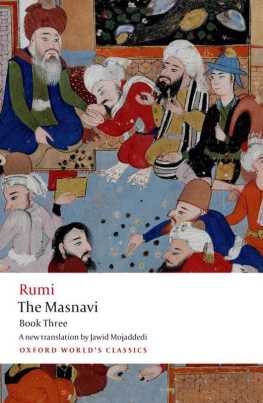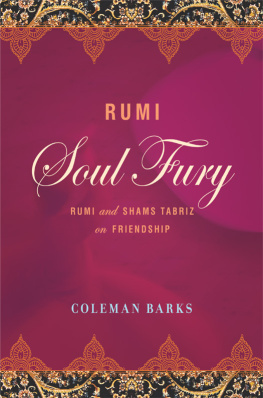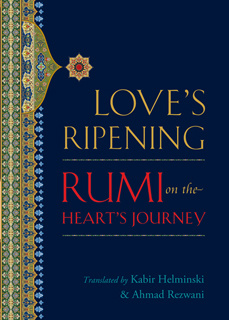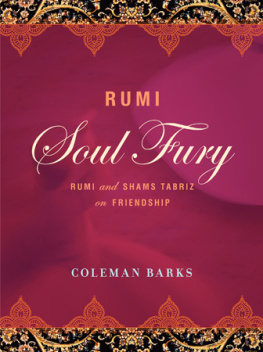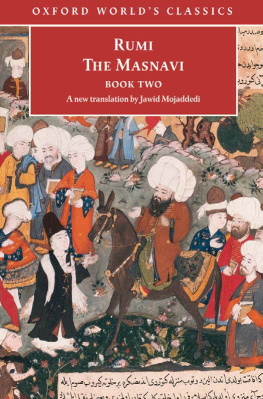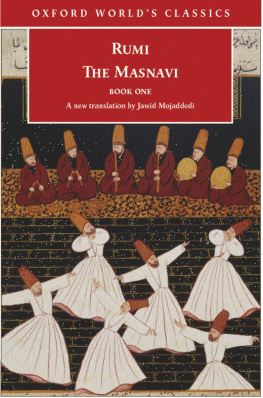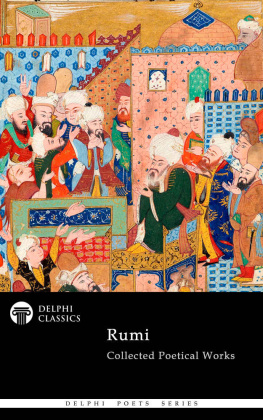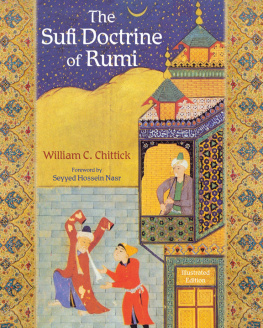Rumi - Masnavi of Rumi: VOLUME TWO Books Four, Five & Six
Here you can read online Rumi - Masnavi of Rumi: VOLUME TWO Books Four, Five & Six full text of the book (entire story) in english for free. Download pdf and epub, get meaning, cover and reviews about this ebook. year: 2017, publisher: NEW HUMANITY BOOKS, genre: Science. Description of the work, (preface) as well as reviews are available. Best literature library LitArk.com created for fans of good reading and offers a wide selection of genres:
Romance novel
Science fiction
Adventure
Detective
Science
History
Home and family
Prose
Art
Politics
Computer
Non-fiction
Religion
Business
Children
Humor
Choose a favorite category and find really read worthwhile books. Enjoy immersion in the world of imagination, feel the emotions of the characters or learn something new for yourself, make an fascinating discovery.

Masnavi of Rumi: VOLUME TWO Books Four, Five & Six: summary, description and annotation
We offer to read an annotation, description, summary or preface (depends on what the author of the book "Masnavi of Rumi: VOLUME TWO Books Four, Five & Six" wrote himself). If you haven't found the necessary information about the book — write in the comments, we will try to find it.
VOLUME TWO
Books Four, Five & Six
Translation & Introduction Paul Smith
Here is the wonderful, timeless, immortal second three books of the Masnavi of the great Sufi Spiritual Master of the 13th century, who has become today the most popular poet in the world, Jelal ad-din Rumi. These stories/poems are powerful, down-to-earth, spiritual and full of joy, bliss and understanding. This book in Iran and elsewhere has been described as The second Koran and is loved today even more than in the past. Included in the Introduction is the life of Rumi and Selected Bibliography and Glossary. The translation of books four, five & six are by R.A. Nicholson in literal English (the result of 30 years work) put into modern English by Paul smith & translations of a large selection Rumis other forms of poetry in correct form are also by Paul Smith. Large Paperback Edition 7 x 10 790 pages.
COMMENTS ON PAUL SMITHS TRANSLATION OF HAFIZS DIVAN.
It is not a joke... the English version of ALL the ghazals of Hafiz is a great feat and of paramount importance. I am astonished.. Dr. Mir Mohammad Taghavi (Dr. of Literature) Tehran.
Superb translations. 99% Hafiz 1% Paul Smith. Ali Akbar Shapurzman, translator of many works in English into Persian and knower of Hafizs Divan off by heart.
I was very impressed with the beauty of these books. Dr. R.K. Barz. Faculty of Asian Studies, Australian National University.
Paul Smith (b. 1945) is a poet, author and translator of many books of Sufi poets from the Persian, Arabic, Urdu, Turkish, Pashtu and other languages including Hafiz, Sadi, Nizami, Attar, Sanai, Jahan Khatun, Obeyd Zakani, Nesimi, Kabir, Anvari, Ansari, Jami, Khayyam, Rudaki, Bulleh Shah, Shah Latif, Mansur Hallaj, Yunus Emre, Muin, Ibn Farid, Lalla Ded, Mahsati, Abu Said, Ghalib, Nazir, Iqbal, Inayat Khan, Makhfi, Baba Farid, Iraqi, Seemsab, Jigar and many others, as well as poetry, fiction, plays, childrens books, biographies and a dozen screenplays.
www.newhumanitybooks.com
Rumi: author's other books
Who wrote Masnavi of Rumi: VOLUME TWO Books Four, Five & Six? Find out the surname, the name of the author of the book and a list of all author's works by series.

